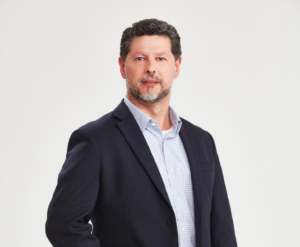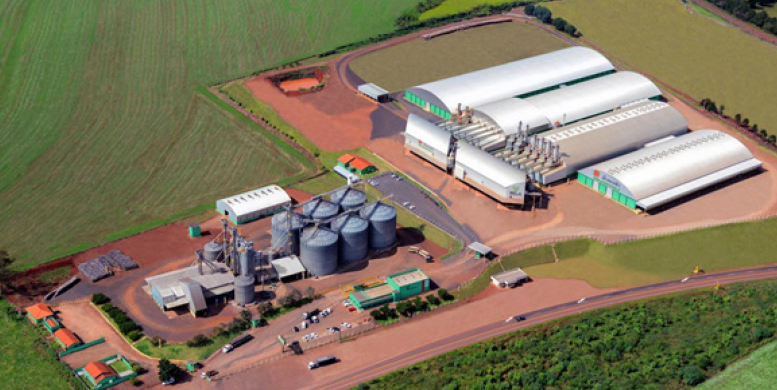Belagrícola, founded in 1985, has become one of the largest distributors of agricultural inputs and grain
traders in Brazil, with more than 1,300 employees. In 2019, it had revenues of US$ 879.5 billion, with sales of agricultural inputs, grains, seeds and fertilizers. In November 2017, the Chinese group Dakang International Food & Agriculture (DKBA), acquired a 53.99% stake in Belagrícola for US$ 253 million. A year earlier, in 2016, the same Chinese organization had acquired 57% for its stake in Fiagril, for US$ 200 million.

Belagrícola’s Financial Director, Alberto Araújo, granted the following interview to AgriBrasilis.
Alberto Araújo is a naval engineer from the University of São Paulo (USP), and a lawyer from the Pontifical Catholic University of São Paulo (PUC-SP), besides having a master’s degree from FIA Business School (USP) in business management, and post graduate as an Advanced Management Program (AMP) in business administration from IESE Business School, in Spain. Currently working at Belagrícola since 2013, Alberto is the Company’s Financial Director (CFO).
AgriBrasilis – What is Belagrícola’s area of activity?
Alberto Araújo – We work in the distribution of agricultural inputs and seeds in more than 100 municipalities in states of Paraná, Santa Catarina and São Paulo. In addition to the purchase and sales soybean, corn, wheat and sorghum grains, among others, with the operation of silos in almost 40 municipalities.
AgriBrasilis – Belagrícola operates with the purchase and sale of grains, agricultural inputs and fertilizers, offering a complete portfolio to the farmer, being one of the major pesticide dealers in Brazil. What is the market trend regarding the mega dealers?
Alberto Araújo – The performance of mega dealers in Brazil and in the world is a reality due to the consolidation of large groups. It is a global movement, which started years ago in other segments and is now more evident in Brazilian agriculture, allowing the improvement of management models in our segment, bringing more competitiveness and innovation in the way of performing in the sector. We can say that it is capital that is being injected into our market, contributing to the improvement of productivity
over the years.
Belagrícola is a good example of having established itself in the market in a solid way, gaining the trust of large investors and being a model of innovation or leading role in the sector.
AgriBrasilis – Would verticalization be the solution to gain market share? Does the company import agrochemical products?
Alberto Araújo – Verticalization coordinated with industry partners can bring benefits to everyone
in the chain. We have some specific import operations for agriculture inputs, due to the most favorable moments in the market, and to meet some specific needs of the operation. The biggest gain is really in the verticalization of the current local players with joint partnerships in:
securitization of receivables for credit, logistic integration (just in time) and reduction of access costs through integrated teams.
AgriBrasilis – What is the impact of importing agrochemical products, directly from foreign manufacturers, by dealers?
Alberto Araújo – Verticalization is a trend in our sector, eventual processes of importing agrochemicals can reinforce a movement of greater competitiveness and transparency. If any dealer decides to engage in this movement, the correct structuring of a trading company that can still operate in grain exports in partnership with local tradings is extremely important. The greatest tendency will always be for long-term partnerships in the sector, predictability of demand is essential to avoid having a shortage or excess of stocks, which justifies greater integration through the verticalization of the agribusiness grain supply chain.
AgriBrasilis – Are medium-sized dealers already losing market share, or will this be part of the near future?
Alberto Araújo – As said before, it is a global movement. It is natural that small and medium dealers are impacted by greater market action. On the other hand, it is an opportunity to rethink the access model and reinvent itself with the service, management, automation, etc. model. It is the opportunity we have to develop ourselves.
AgriBrasilis – What are the impacts caused by COVID-19 and the rise in the dollar on the pesticide market?
Alberto Araújo – The agricultural sector does not stop and cannot stop. Of course, we had to make internal and external preventive changes to COVID-19, but taking into account that our activity is essential. The production was one of the best in recent years, despite the adverse scenario, we achieved surprising numbers.
The high dollar impacted the increase in pesticide prices, since most of them are imported products, this increase will reach the producer.
AgriBrasilis – Considering China is the largest importer of agricultural commodities from Brazil and the largest manufacturer of agrochemical products in the world, what is the Dakang-Belagrícola synergism?
Alberto Araújo – Despite the cultural distance between our countries, we speak the same market language. We want to grow together and have similar purposes. It’s been three years of partnership, and we can see that we got it right.
AgriBrasilis – What are Belagrícola’s plans and challenges for the coming years?
Alberto Araújo – We seek leadership in the markets we are in, so that our entire chain is unified. This year we are completing 35 years and we are rethinking all the time how we will build the next 35 years, as it will certainly not be the same way, given the reality of the market. Innovation remains part of our DNA and we know that it is essential to rethink our management model. For this reason, we seek the best benchmarks in the market for our operations. Today we have 47 branches and serve more than 100 cities in three states in Brazil (Paraná, Santa Catarina and São Paulo). With 1,300 employees, we value our teams, which puts us in good positions in the rankings of the best place to work at.

